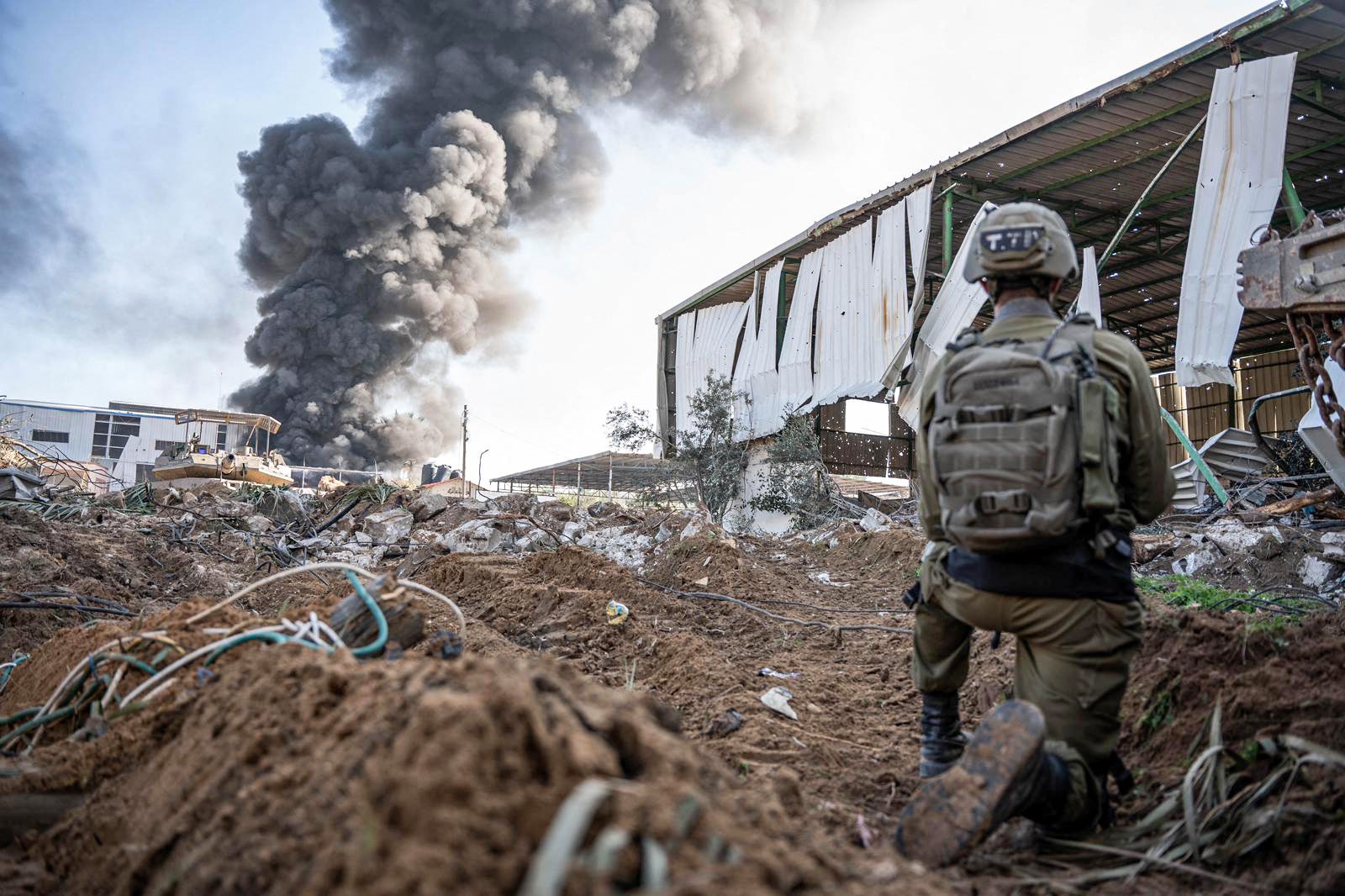Donald Trump has doubled down on his proposal for the US to take over the Gaza Strip – despite a global backlash – claiming that Israel will hand it over to Washington once the current 15-month war in the territory is over – and without the need for American troops to be involved.
Arab nations across the Middle East, Palestinians inside Gaza and nations across Europe moved swiftly to condemn Mr Trump’s suggestion earlier this week that the US “will take over the Gaza Strip” with a “a long-term ownership position” – estimating that about 1.8 million of the near-2.3 million Palestinians living in Gaza would have to be relocated to neighbouring nations to achieve his vision of turning what he called a “hell hole” into “the Riviera of the Middle East”.
Several countries have made clear that the forced relocation of Palestinians would violate international law, but in a post on his Truth Social platform early on Thursday, the US president said: “The Gaza Strip would be turned over to the United States by Israel at the conclusion of fighting.” He added that Palestinians would be “resettled in far safer and more beautiful communities, with new and modern homes, in the region”.
He said that the US would work “with great development teams from all over the world” and “slowly and carefully begin the construction of what would become one of the greatest and most spectacular developments of its kind on Earth”.
In his initial remarks on Tuesday, Mr Trump had left the door open to using US forces. But with some US politicians expressing trepidation about such a move, the US president said in his latest post that “no soldiers by the US would be needed”.
The White House insisted the resettling of the Gazan population would only be temporary. Jordan had earlier reiterated its opposition to hosting more Palestinian refugees, stating they should not be expelled from Gaza. Regional heavyweight Saudi Arabia rejected the proposal outright.

Mr Trump’s proposal comes two weeks after the start of a fragile ceasefire in Gaza, during which Hamas has released some Israeli hostages it is holding in exchange for Palestinian prisoners in Israeli jails. The Israeli military launched a campaign to destroy Hamas in response to an unprecedented cross-border attack on 7 October 2023, in which about 1,200 people were killed and 251 were taken hostage.
More than 47,500 people have been killed and 111,000 injured in Gaza since then, according to the health ministry in the enclave. Almost 70 per cent of buildings are estimated to be damaged or destroyed according to the UN, while healthcare, water, sanitation and hygiene systems have been destroyed. There are widespread shortages of food, fuel, medicine and shelter, particularly in the north.
Shortly before Trump doubled down on his Gaza proposal, Britain’s foreign office minister Anneliese Dodds told the House of Commons that the UK “would oppose any effort to move Palestinians in Gaza to neighbouring Arab states against their will”.
Ms Dodds said “Palestinians must determine the future of Gaza” and the UK government considers the enclave an “integral part” of a future Palestinian state “with Palestinians living next to Israelis in peace and security” as part of a two-state solution to decades of conflict.
Mr Trump’s plan was met with approval by Israel’s government and earlier on Thursday the nation’s army was ordered to prepare a plan to allow the departure of Palestinians from Gaza.
Israeli defence minister Israel Katz said he “welcomed president Trump’s bold plan”, which includes turning the Gaza Strip into the “Riviera of the Middle East”, and claimed Palestinians should be permitted to leave the enclave. He said this would include options to exit the enclave via land, sea and air.
“I welcome President Trump’s bold plan, Gaza residents should be allowed the freedom to leave and emigrate, as is the norm around the world,” Israel’s Channel 12 quoted Mr Katz as saying.
When asked who should take in the Palestinians, Mr Katz said it should be countries who have opposed Israel’s military offensive in Gaza.
“Countries like Spain, Ireland, Norway, and others, which have levelled accusations and false claims against Israel over its actions in Gaza, are legally obligated to allow any Gaza resident to enter their territories,” he said.
“Their hypocrisy will be exposed if they refuse to do so. There are countries like Canada, which has a structured immigration program, that have previously expressed a willingness to accept Gaza residents.”
Spanish foreign minister Jose Manuel Albares swiftly rejected this suggestion, saying: “Gazans’ land is Gaza and Gaza must be part of the future Palestinian state.”
Palestinians have long been haunted by what they call the “Nakba”, or catastrophe, when 700,000 people were dispossessed from their homes during the war that surrounded the creation of Israel in 1948.
Many fled to neighbouring Arab states, including to Jordan, Syria and Lebanon, where many of them and their descendants still live in refugee camps. Some went to Gaza. Israel disputes the account that they were forced out.



